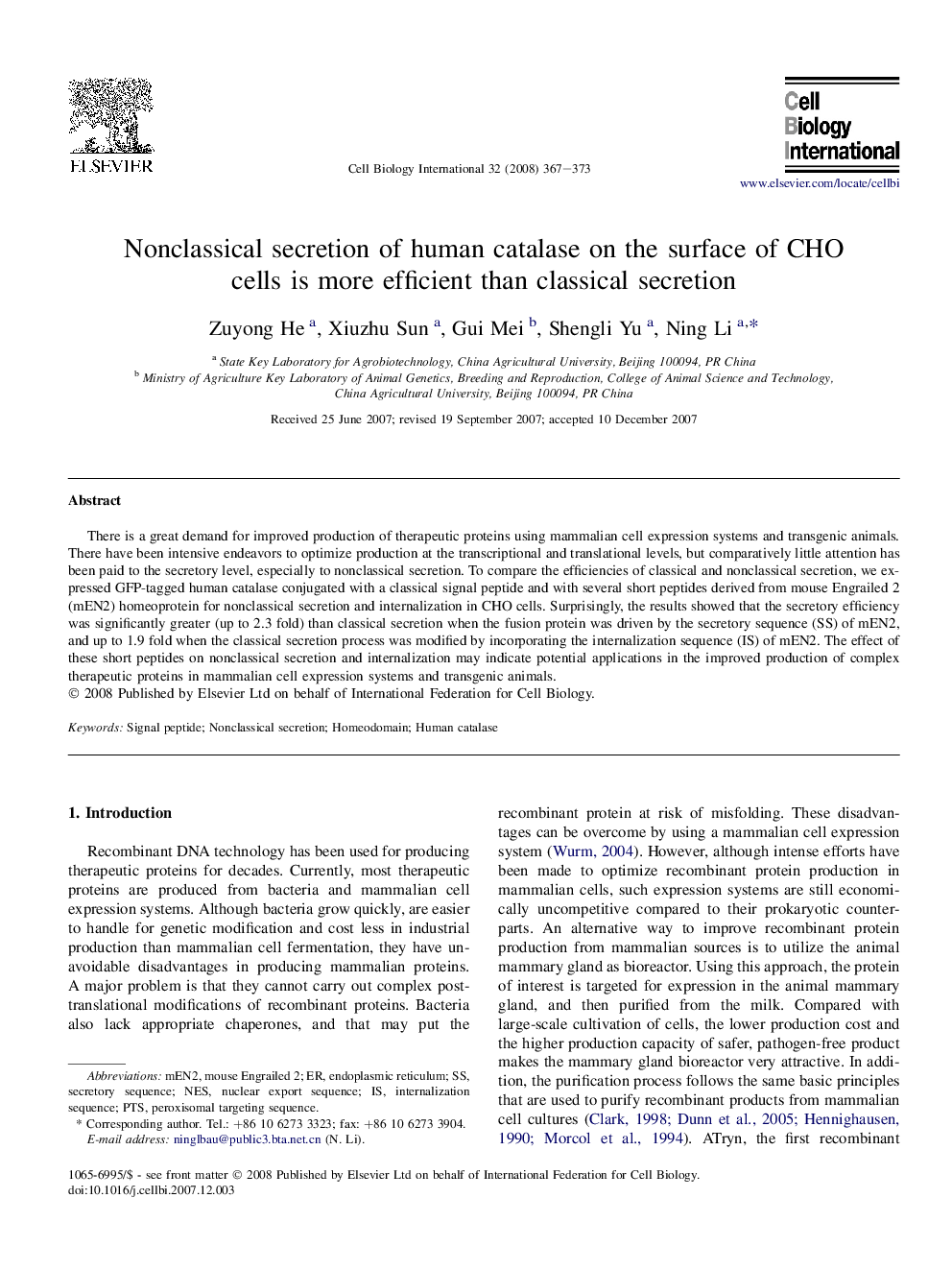| Article ID | Journal | Published Year | Pages | File Type |
|---|---|---|---|---|
| 2067369 | Cell Biology International | 2008 | 7 Pages |
Abstract
There is a great demand for improved production of therapeutic proteins using mammalian cell expression systems and transgenic animals. There have been intensive endeavors to optimize production at the transcriptional and translational levels, but comparatively little attention has been paid to the secretory level, especially to nonclassical secretion. To compare the efficiencies of classical and nonclassical secretion, we expressed GFP-tagged human catalase conjugated with a classical signal peptide and with several short peptides derived from mouse Engrailed 2 (mEN2) homeoprotein for nonclassical secretion and internalization in CHO cells. Surprisingly, the results showed that the secretory efficiency was significantly greater (up to 2.3 fold) than classical secretion when the fusion protein was driven by the secretory sequence (SS) of mEN2, and up to 1.9 fold when the classical secretion process was modified by incorporating the internalization sequence (IS) of mEN2. The effect of these short peptides on nonclassical secretion and internalization may indicate potential applications in the improved production of complex therapeutic proteins in mammalian cell expression systems and transgenic animals.
Keywords
Related Topics
Life Sciences
Biochemistry, Genetics and Molecular Biology
Biophysics
Authors
Zuyong He, Xiuzhu Sun, Gui Mei, Shengli Yu, Ning Li,
